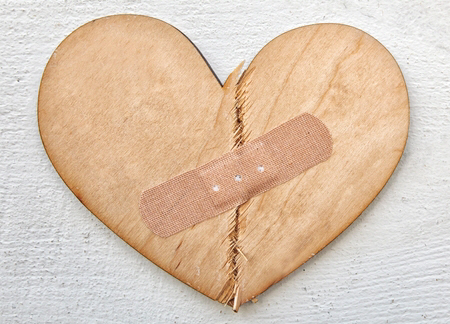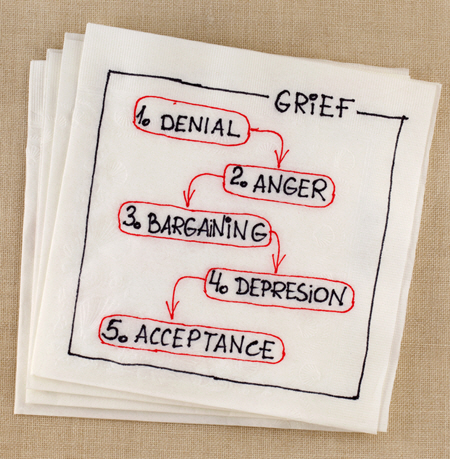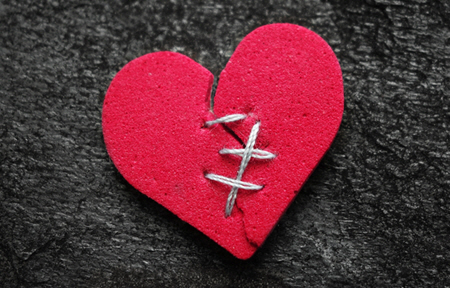 Whatever type of loss you’ve suffered…
Whatever type of loss you’ve suffered…
Divorce or loss of a relationship…
The shock is devastating. Over time the loneliness is palpable. Accepting that “they are gone” or “it is over” is new for you and not easy. Part of your life, this person is gone, and so is your life flow. Others try to help. The result is minimal compared to the pain you feel. You shrink socially. Dealing with people is the last thing on your mind.
Death of a pet…
You are looking around, and they are not there. Home feels empty. Your best friend has left you. You feel it. Others may not understand. After all, it’s not a human. You can’t accept a part of you is gone.
Loss of health…
This changes everything. A serious health event can leave you defeated. It’s hard to feel that life may never be the same. Am I strong enough to handle what is ahead? All or nothing thinking has you depressed.
Losing a job…
Angry. Embarrassed. Hopeless. Some of the tough feelings when your financial state is rocked. Where do I go from here? I can’t tell anyone. The loss of daily routine has you stuck.
A miscarriage…
Numbness. Disbelief. Anger. Guilt. Sadness. You feel strongly connected and can’t let go. You stretch to find someone to blame. How can I live with this terrible loss? How do you and your partner survive this? Waves of feelings flood you.
Retirement…
This is not what you expected. Is this what is left? I waited for this all my life. How do I find meaning in my life again?
A loved one’s serious illness…
Denial. I cannot lose you. “Caretaker” scares you. You have heard how hard it can be. What comes next is unknown. How much will things change?
I don’t want to lose myself. How can I make them feel better and take care of myself?
 There is no right or wrong way to grieve.
There is no right or wrong way to grieve.
You feel like you have to act a certain way or hide your true feelings due to others’ expectations. Maybe you feel guilty for your part in the loss. You avoid it altogether and are criticized for moving on.
On top of your loss is the pressure of fitting into the “grieving 101” mentality.
Yes, grieving is a process, and it does have stages. It would be easier if it was linear and fit into a neatly packaged box.
Yet grief is a complex set of emotions and reactions. The process can last a long time. It’s a series of loops. You can circle back to where you were years ago. One day you may have accepted the loss only to have it come out of nowhere the next and hit you with strong feelings.
It is a very individual process.
I am here to tell you to do it your way. I can help you.
 Coping with a loss is one of life’s biggest challenges.
Coping with a loss is one of life’s biggest challenges.
It involves deep sorrow.
You cry a lot and feel unstable. Emptiness, despair, loneliness, and yearning seep in. You would prefer it back the way it was. These are the most universally experienced symptoms of grief. You are in disbelief.
It’s emotionally overwhelming.
Denying seems easier. As you search for answers, anger, resentment and blame are the new you. It’s hard to validate your feelings, so you get down on yourself and feel like everything you do is wrong.
It can affect your physical health.
Mental anguish leads to bodily pain. Fatigue, nausea, weight issues, insomnia, aches, and pains. Why should you take care of yourself? You have no reason.
It might also make you very negative.
Black and white thinking, “what if,” and catastrophic thinking make your future look bleak. Add on anger, guilt, and regrets, and nothing looks positive. Hope is gone.
 I can help you come to terms with your loss.
I can help you come to terms with your loss.
You heal when you are able to tell your story and be acknowledged.
My approach to grief and loss is an innovative holistic one.
I blend traditional talk therapy with Brainspotting Psychotherapy.
We will talk and explore your experience.
Grief is a primal experience which lodges itself deep inside the brain. Talk therapy cannot reach all of these experiences.
Enter Brainspotting – a brain based therapy that targets neurological connections related to grief.
It allows you to identify and process specifc target points in your brain associated with grief and enable deep healing by addressing how your nervous system is reacting.
By resetting your nervous system we are able to ease your sadness, develop healthy ways to cope and find new meaning in life.
I blend talk therapy and brainspotting according to your individual needs. My approach allows the mind and the body to heal together.
 Some common myths might discourage you from reaching out…
Some common myths might discourage you from reaching out…
“The pain will go away if I ignore it.”
Maybe going about your day works has worked for you in other areas of your life. This is different. And it is ok to put your grief away at times. Dismissing it is a temporary fix. Loss reactions can creep into your life when you do not expect them — even years later.
“It’s important to stay strong.”
Putting on a brave front seems like the right thing to do. Somehow, you feel you need to protect others by not showing your true feelings. Feeling sad, frightened, or lonely is typical. Holding your true feelings in will make grief harder for you in the long run.
“If I don’t cry, I am not sorry about the loss.”
Crying is a normal response but not the only one. You may have other ways of showing your sorrow, and that’s ok. This is a very individualized process; you deserve to determine how to do it.
“Grieving should only last a year.”
It’s hard to anticipate your grief cycle. It varies from person to person. It’s important to remember that it is yours and yours alone. You deserve the time you need to process your loss.
“Moving on means forgetting the loss.”
Think of moving on as acceptance of the event. It does not mean that you forget what happened. You can reinvent your life and keep sweet memories alive. These may be integral in defining the next stage of your life and help you build resilience.
I am sorry that you are suffering.
No matter your loss, it’s life-changing… and deserving of help.
I can help you process what happened naturally… and be patient with yourself as you heal.
Please let me provide you with the consistency and support you need in this challenging time.
You’re in a safe place here. Call or text me today for your free consultation: (516) 446-8910.

